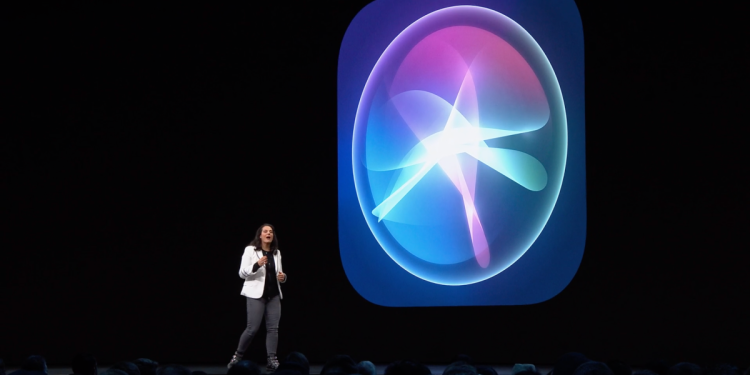Watch all the Transform 2020 sessions on-demand here.
After Apple’s digital assistant Siri was revealed to be sharing extended recordings of users’ private audio with contractors hired to grade response accuracy, Apple responded by firing the contractors and promising to bring grading in-house. Now one of the former contractors has leaked internal Siri documents to the Guardian, including details of several surprising upgrades planned for release “by fall 2021” and a series of tweaks made to Siri’s post-#MeToo discussions of feminism.
According to the report, Apple is working on future Siri updates that will enable the assistant to support an unnamed new device, “have a back-and-forth conversation about health problems,” and offer integrated machine translation functionality. While no details are included, this could be something as simple as providing voice location details for an Apple Bluetooth location tracking accessory, or it could be something considerably more complex.
Most interesting of the three is the health discussion feature, which suggests Siri might be used in combination with a WebRX-style system to aggregate symptoms into health recommendations. This is far more likely to result in advice to contact one’s doctor or pharmacy than a diagnosis. Given that Siri frequently stumbles when asked to handle all sorts of basic requests, the idea of relying on the assistant for actual medical guidance today is at best far-fetched.
On the machine translation front, Siri is already beginning to offer some assistance, as it can currently translate spoken words and phrases from a device’s default language into a foreign language. Consequently, an evolution would likely allow it to handle more robust conversations, likely relying less on servers and more on on-device processing and translation capabilities. This could move Siri closer to tackling actual conversational AI than it manages in its current form, which is focused on offering responses to a single discrete question or command.
June 5th: The AI Audit in NYC
Join us next week in NYC to engage with top executive leaders, delving into strategies for auditing AI models to ensure fairness, optimal performance, and ethical compliance across diverse organizations. Secure your attendance for this exclusive invite-only event.
Apple is also in the process of expanding Siri’s functionality in iOS 13, giving the Apple Watch more robust access to the digital assistant’s Shazam, Find My, and App Store-hunting capabilities and enabling a HomePod to begin playback based on a verbal command initiated on another Siri device. A feature that could automatically read text messages through AirPods, akin to a similar CarPlay feature, popped in and out of iOS 13 betas.
The report also notes that Apple less surprisingly tweaked Siri’s manner of addressing “sensitive topics,” including feminism and the #MeToo movement, emphasizing that the assistant supported “equality” while dodging specific questions regarding gender politics. Siri now directs inquiries about feminism to sources such as Wikipedia rather than offering glib responses such as “I just don’t get this whole gender thing” and responds sternly rather than warmly when called a “slut.”
One curious detail in the leaked documents suggests that Apple treats Siri as an incorporeal, placeless, and genderless being that was not created by humans: “Siri’s true origin is unknown, even to Siri,” it says, “but it definitely wasn’t a human invention.” In reality, Siri was developed by a startup spun off from the SRI International Artificial Intelligence Center, which was acquired by Apple in 2010, and the assistant was rereleased with the iPhone 4S in 2011.


